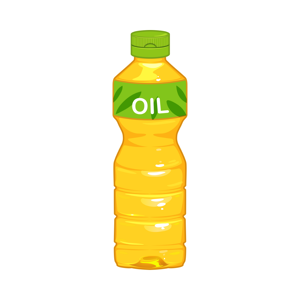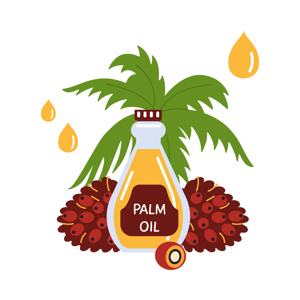Tavex uses cookies to ensure website functionality and improve your user experience. Collecting data from cookies helps us provide the best experience for you, keeps your account secure and allows us to personalise advert content. You can find out more in our cookie policy.
Please select what cookies you allow us to use
Cookies are small files of letters and digits downloaded and saved on your computer or another device (for instance, a mobile phone, a tablet) and saved in your browser while you visit a website. They can be used to track the pages you visit on the website, save the information you enter or remember your preferences such as language settings as long as you’re browsing the website.
| Cookie name | Cookie description | Cookie duration |
|---|---|---|
| tavex_cookie_consent | Stores cookie consent options selected | 60 weeks |
| tavex_customer | Tavex customer ID | 30 days |
| wp-wpml_current_language | Stores selected language | 1 day |
| AWSALB | AWS ALB sticky session cookie | 6 days |
| AWSALBCORS | AWS ALB sticky session cookie | 6 days |
| NO_CACHE | Used to disable page caching | 1 day |
| PHPSESSID | Identifier for PHP session | Session |
| latest_news | Helps to keep notifications relevant by storing the latest news shown | 29 days |
| latest_news_flash | Helps to keep notifications relevant by storing the latest news shown | 29 days |
| tavex_recently_viewed_products | List of recently viewed products | 1 day |
| tavex_compare_amount | Number of items in product comparison view | 1 day |
| Cookie name | Cookie description | Cookie duration |
|---|---|---|
| chart-widget-tab-*-*-* | Remembers last chart options (i.e currency, time period, etc) | 29 days |
| archive_layout | Stores selected product layout on category pages | 1 day |
| Cookie name | Cookie description | Cookie duration |
|---|---|---|
| cartstack.com-* | Used for tracking abandoned shopping carts | 1 year |
| _omappvp | Used by OptinMonster for determining new vs. returning visitors. Expires in 11 years | 11 years |
| _omappvs | Used by OptinMonster for determining when a new visitor becomes a returning visitor | Session |
| om* | Used by OptinMonster to track interactions with campaigns | Persistent |
| Cookie name | Cookie description | Cookie duration |
|---|---|---|
| _ga | Used to distinguish users | 2 years |
| _gid | Used to distinguish users | 24 hours |
| _ga_* | Used to persist session state | 2 years |
| _gac_* | Contains campaign related information | 90 days |
| _gat_gtag_* | Used to throttle request rate | 1 minute |
| _fbc | Facebook advertisement cookie | 2 years |
| _fbp | Facebook cookie for distinguishing unique users | 2 years |
How Are Gold and Used Cooking Oil Similar?

Used cooking oil, sometimes referred to as “liquid gold”, turns out to be an extremely valuable resource. In the seemingly disparate realms of precious metals and kitchen staples, gold and cooking oil may appear to have little in common. Yet, their connection runs deeper than meets the eye, influencing global economics, environmental policies, and sustainable practices.
This article explores the intriguing linkages between gold and cooking oil, shedding light on how these commodities impact each other and the broader world.
Economic Interdependencies: Market Dynamics and Consumer Behaviour

The Role of Global Markets
Both gold and cooking oil are commodities traded on global markets, where their prices are subject to fluctuations due to various economic factors.
For example, political instability, inflation, and changes in currency values can significantly impact the price of gold, which is often seen as a safe-haven asset during times of economic uncertainty.
Similarly, cooking oil prices are influenced by agricultural conditions, trade policies, and biofuel demand
Consumer Demand and Investment Trends

Consumer behaviour and investment trends also establish a connection between gold and cooking oil. During economic downturns, consumers may shift their preferences towards more affordable and essential commodities like cooking oil, potentially reducing their investment in luxury or more expensive items like gold.
The cost of living crisis happening in the United Kingdom right now could also impact the amount of people with spare disposable income to be putting into safe investments such as gold.
Conversely, when the economy is robust, higher disposable incomes can boost demand for both high-value commodities like gold and more expensive, health-oriented cooking oils such as olive or virgin coconut oil.
Environmental Impact and Sustainability Efforts
The Environmental Cost of Extraction and Production
Gold mining and cooking oil production both have significant environmental footprints
Gold mining is known for its high energy, high temperatures, and water usage, and it often leads to soil and water pollution due to the chemicals used in the process of gold production.
On the other hand, the cultivation of crops for cooking oil, such as palm oil, can lead to deforestation, habitat destruction, and biodiversity loss in local communities.
Initiatives for Sustainable Practices

Recognising these environmental impacts, there are increasing efforts to implement sustainable practices in both industries. In the gold mining sector, initiatives like the Responsible Gold Mining Principles aim to improve the environmental, social, and governance standards of gold mining company operations. Similarly, the Roundtable on Sustainable Palm Oil (RSPO) works to ensure that palm oil is produced under environmentally friendly and socially responsible conditions.
Technological Innovations and Future Prospects

Advancements in Extraction and Processing Techniques
Technological advancements play a crucial role in connecting gold and cooking oil through more efficient and environmentally friendly extraction and processing methods.
Innovations in gold mining techniques, such as bio-leaching, use microorganisms to extract gold without harmful chemical
In the cooking oil industry, new extraction technologies are minimising waste and reducing the use of harmful pesticides and fertilisers.
The Potential for Cross-Industry Learning
The exchange of knowledge and technology between these two industries could lead to improved sustainability and efficiency in the long term.
For instance, the mining industry’s experience in land rehabilitation can provide valuable insights for the agricultural sector, particularly in regions affected by intensive farming practices.
Conclusion
In conclusion, the connection between gold and cooking oil, be it olive oil or vegetable oil, extends beyond their basic economic value, touching upon issues of environmental impact, sustainability, and technological innovation.
As global awareness of these connections grows, it becomes crucial for consumers, investors, and policymakers to consider these factors when making decisions that affect both markets, even in small amounts.
Through continued collaboration and innovation, the gold and cooking oil industries can move towards a more sustainable future, benefiting the economy and the environment alike.
















